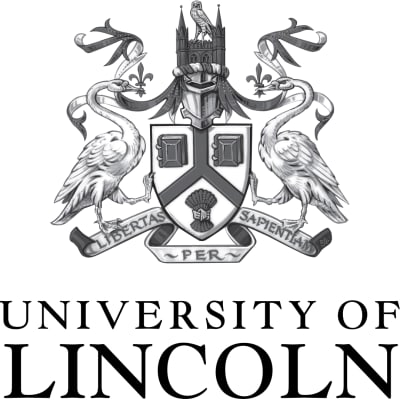
MSc International Investment Banking
University of Lincoln

Key Information
Campus location
Lincoln, United Kingdom
Languages
English
Study format
On-Campus
Duration
1 - 2 year
Pace
Full time, Part time
Tuition fees
Request info
Application deadline
Request info *
Earliest start date
Request info
* most of our postgraduate courses have no specific closing date for applications. Please allow enough time for your application to be considered prior to the start date. If you are an international student you may need to factor in time for your visa application. We would advise you to apply as soon as possible
Discover Lincoln Wherever You Are in the World
Our webinars, subject masterclasses, question and answer sessions, and student panel talks are a great way to discover what it is like to live and study at the University of Lincoln.
Introduction
MSc International Investment Banking is designed for those who wish to pursue a career in the investment banking sector where demand is high for specialists with applicable knowledge of corporate finance, portfolio theory, investment, and commercial banking across the global market.
The programme aims to develop expertise in the fields of international banking and financial markets with a focus on security analysis and investment management. It sheds light on how the economy works, how decisions are made, and how financial systems and capital markets operate.
Students on the programme have the opportunity to work on the Lincoln Student Managed Investment Fund, which operates in the same style as an investment management company operating on the London Stock Exchange. Supported by staff who have previously worked as investment bankers, students run all aspects of the fund and are fully responsible for its success.
Successful graduates may go on to pursue careers in finance and investment in roles including analyst, trader, portfolio manager in investment banks, commercial banks, hedge funds, and pension funds.
Prioritising Face-to-Face Teaching
At the University of Lincoln, we strive to ensure our students’ experience is engaging, supportive, and academically challenging. Throughout the Coronavirus pandemic, we have adapted to Government guidance to keep our students, staff, and community safe. All remaining Covid-19 legal restrictions in England were lifted in February 2022 under the Government’s Plan for Living with Covid-19, and we have embraced a safe return to in-person teaching on campus. Where appropriate, face-to-face teaching is enhanced by the use of digital tools and technology and may be complemented by online opportunities where these support learning outcomes.
We are fully prepared to adapt our plans if changes in Government guidance make this necessary, and we will endeavour to keep current and prospective students informed. For more information about how we are working to keep our community safe, please visit our coronavirus web pages.
Industry Expertise
Lincoln International Business School has an experienced team of staff, which is made up of academically and professionally qualified lecturers with relevant industrial experience and finance experts with wide research interests.
The Business School hosts a series of visiting speakers each year. As part of the School, students will have the opportunity to learn from industry experts. Previous speakers have included representatives from organisations such as Deloitte, Santander, HSBC, Innocent, The Institute of Internal Auditors and Sir David Tweedie (ex-Chairman of the IASB).
Students also have the chance to build their skills and knowledge further with extra-curricular activities such as joining a society, volunteering or becoming a Student Ambassador.
Working in Partnership
Lincoln International Business School works with students and organisations to enhance the contribution of business to society. For students, that means developing their business skills and knowledge to improve their career readiness.
The University of Lincoln is a member of AACSB, a global nonprofit association connecting educators, students, and businesses to achieve a common goal: to create the next generation of great leaders.
"This information was correct at the time of publishing (July 2023)"
Admissions
Curriculum
- Commercial Bank Management (Core)
- Dissertation and Research Design for Finance (Core)
- International Macroeconomics and Finance (Core)
- Investment Banking (Core)
- Portfolio Analysis (Core)
- Private Banking and Wealth Management (Core)
- Quantitative Methods for Economics and Finance I (Core)
- Quantitative Methods for Economics and Finance II (Core)
- Risk Management in Banking (Core)
- Lincoln Student Managed Investment Fund - Masters (Option)†
How You Study
Delivery methods include lectures, workshops and seminars. Skills include presentation skills, technical skills, teamwork skills analytical skills, problem solving skills, research skills, engagement with development agencies, and local business support.
Students are expected to attend additional sessions that may occur before the programme begins - please contact the programme leader for details.
Contact Hours and Independent Study
Eight to ten hours of self-directed and focused study is needed to meet demands of the degree depending on the background of the students.
Weekly contact hours on this programme may vary depending on the module options chosen and stage of study. Hours of study may vary from term to term for both full and part-time students and can be spread throughout the week. Part-time students will complete the programme within two years. The programme structure for part-time study will be at the discretion of the Programme Leader.
How You Are Assessed
A variety of assessment methods are used during this course, including essays, examinations, coursework, projects, and oral presentations. These assessments are designed to develop the skills needed for a career as an economist or policy advisor or academic.
Research at Lincoln International Business school
Academics on the MSc International Investment Banking are involved in the Lincoln Economics and Finance Research Group (LEAF). LEAF brings together economics and finance academics from University of Lincoln’s International Business School and School of Social and Political Sciences, graduate students, and a diverse network of collaborators, with the aim of facilitating the creation and diffusion of rigorous and policy relevant research as well as research skills within the University, the local community, and society at large.
Their research is based on microeconomic models encompassing heterogeneous individual and firm behaviours and extends to the functioning of particular industries. Furthermore, the macroeconomic perspective that brings in the picture the interplay of institutions, markets, and policies in the diverse contexts of developing, emerging, and developed economies is also explored.
Gallery
Scholarships and Funding
Several scholarship options are available. Please check the university website for more information.
Program Tuition Fee
Career Opportunities
Finance and investment career opportunities for graduates include financial manager, investment portfolio manager, and private/commercial/investment banker in varied economic and political contexts.
The University Careers and Employability Team offer qualified advisors who can work with you to provide tailored, individual support and careers advice during your time at the University. As a member of our alumni we also offer one-to-one support in the first year after completing your course, including access to events, vacancy information and website resources; with access to online vacancies and virtual and website resources for the following two years.
This service can include one-to-one coaching, CV advice and interview preparation to help you maximise your future opportunities.
The service works closely with local, national and international employers, acting as a gateway to the business world.
Accreditations
Program delivery
Delivery methods include lectures, workshops and seminars. Skills include presentation skills, technical skills, teamwork skills analytical skills, problem solving skills, research skills, engagement with development agencies, and local business support.
Eight to ten hours of self-directed and focused study is needed to meet demands of the degree depending on the background of the students.
Weekly contact hours on this Program may vary depending on the module options chosen and stage of study. Hours of study may vary from term to term for both full and part-time students and can be spread throughout the week. Part-time students will complete the Program within two years. The program structure for part-time study will be at the discretion of the Program Leader.